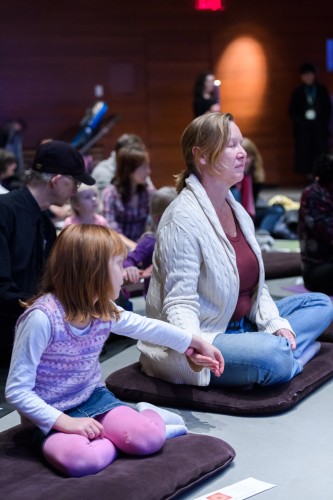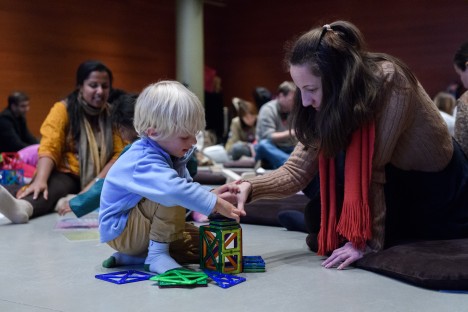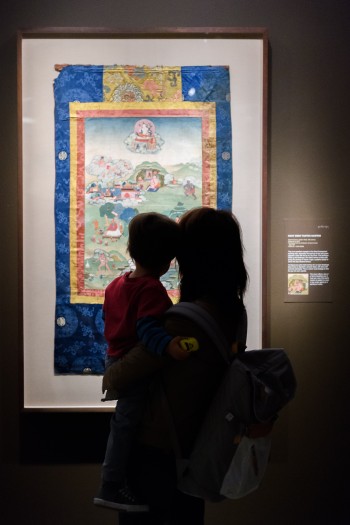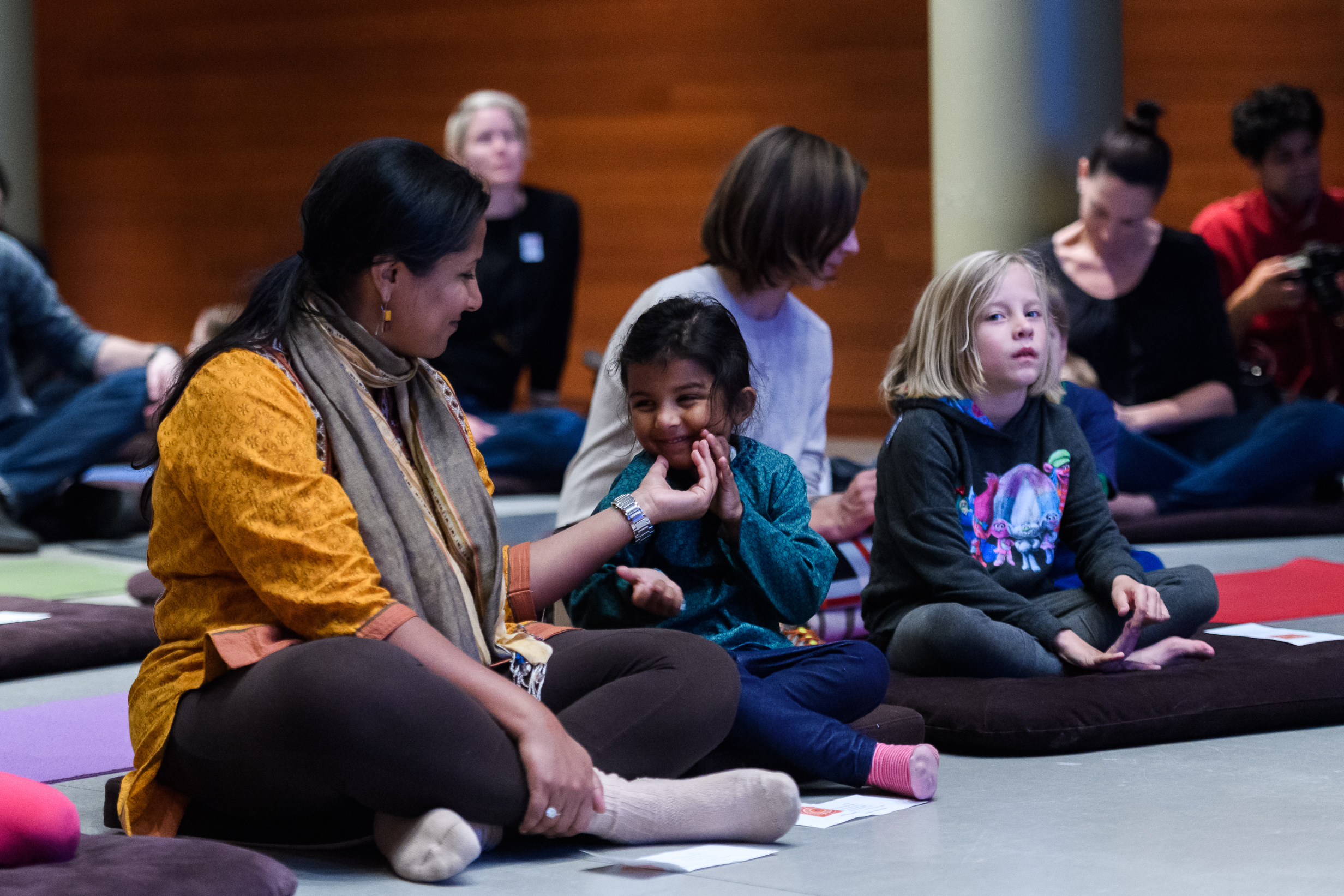
This blog post is written by mindfulness teacher and neuroscience researcher, Ayman Mukerji Househam, who is leading a family mindfulness workshop series at the Rubin, beginning in November.
We want what is best for our children. Sometimes we also want to see our own unfulfilled dreams fulfilled through them. The truth is, our children are their own individuals. Each child will eventually blossom into a beautiful unique adult. As parents we simply have to offer the nurturing environment for them to grow into themselves. Just as a plant needs pruning, we need to gently guide them at times. This guidance is often where the parenting conundrum lies. Are we giving the correct guidance? Are we imposing on them? Did we just mess up?”¦ The list goes on—and so does the stress of being a parent.
Now I invite you to take a step back. Let’s look at parenting from a completely different perspective. What happens when we embrace this uncertainty and simply set our intention on learning from the parenting experience? After all, children come to this world with an innate sense of presence, with a natural ability to enjoy the smaller things in life. Parents, on the other hand, have lost the art of simple living. If our children become our mindfulness teachers, a shift happens—within ourselves and in our relationships, especially the ones with our kids.
Here are five reasons why parents should learn mindfulness from their children.

1) As a parent, you will always find yourself at a tipping point and mindfulness is the only way. Being a parent opens us up to the ultimate vulnerability of the human condition. The birth of a parent is more sudden than that of a child. We instantly become responsible for this little life, we grow sleepless and tired, and our limits are stretched. It is very easy to become stressed. But then our child also suffers. So how do we ground ourselves while walking this tightrope? Mindfulness is clearly the answer when you are at a tipping point.
2) You already have a mindfulness teacher—your child. So learn from them. Use all your senses and your entire body to become a part of those little joys that your child encounters. When your child marvels at a beautiful flower or a big truck, join in on that sense of wonder. These are the moments you will both cherish. Remember to put away electronic devices while you are with your child. This is a chance to re-evaluate what is truly urgent and what can wait.
3) Mindfulness is the recipe for immediate connection, building trust, and boosting confidence. When you tune in and synchronize with your child’s mindful presence, you pay deep attention to them, their actions, and the present moment. You form an immediate connection and an unbreakable bond, and the child feels appreciated. They interpret this as a nod of approval in their way of living, which fosters their confidence.

4) The biggest side effect of becoming mindful with your child is compliance. Because you have gained their trust, they believe you when you draw boundaries for them. Also, by tuning in to their sense of presence (or lack thereof) and body language, you can anticipate a meltdown before it strikes. Most or all tantrums could be prevented through this approach of tuning in to the child.
5) If you live mindfully in the presence of your child, you model the ideal stress response. Imagine that you receive some undesirable news while you are playing with your child. Even if you do not share any words about it with your child, they instinctively know how you feel. Think of stress as a contagion—if you start reacting to this news, the child will start acting out as well. In contrast, if you respond to the news by accepting it for now and simply going back to your full presence mode, not only does the child stay happy but they actually learn how to respond to bad news. In other words, you are teaching the child mindfulness through your own behavior.
Needless to say, when you practice mindfulness, you become calm and healthy (my soon-to-be-published research paper on the advances of mind/body medicine finds that your immune system is boosted when you are mindful!) and your relationship to the world changes. Studies have shown that when a parent becomes mindful, the child’s behavior becomes more compliant. Our children need us to be mindful with them. Once we fill up their bucket of mindful companionship, they learn how to become self-reliant, independent, and confident.

About the Author
Ayman Mukerji Househam is a mindfulness teacher and neuroscience researcher at NYU Langone Medical School. Her work focuses on the benefits of mindfulness for families. Househam’s publications show the benefits of a regular mindfulness practice on the brain and general well-being. She is finishing a publication on the neuroimmunological and gut microbial changes associated with a stress-free life. Househam has worked with pediatric patients with autism spectrum disorder and ADHD, a topic she elaborates on in another upcoming book. Her approach toward building mindful families blends mindfulness techniques of the East with parent-child-interaction therapy of the West.
A mindfulness practitioner for the past twenty years, Househam practices mindfulness with her own family of four.
Family Programs are made possible by Con Edison, Agnes Gund, New York Life, and public funds from the New York City Department of Cultural Affairs in partnership with the City Council.
Photos: Filip Wolak

